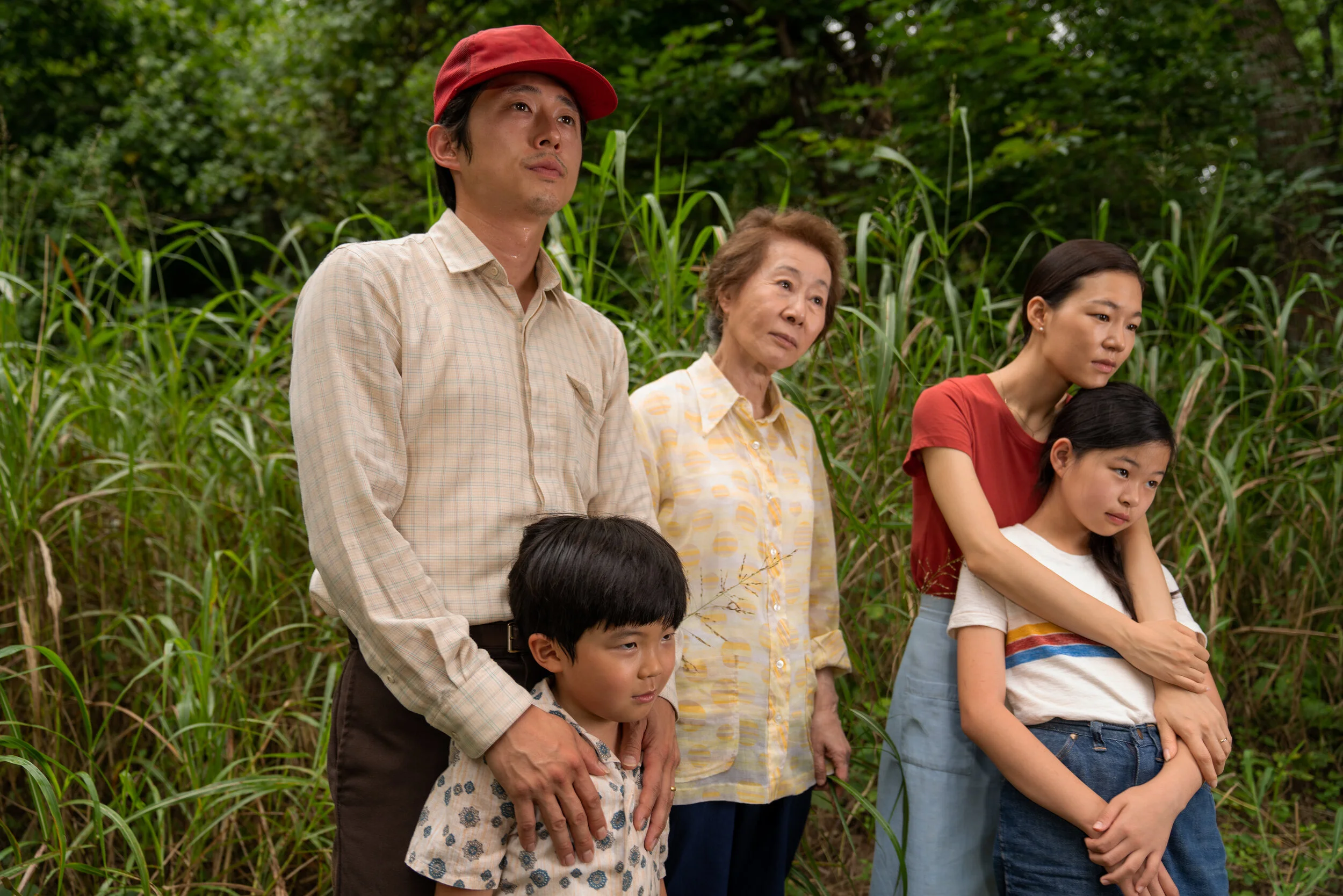Minari: An American Parable
The critically acclaimed film Minari paints a powerful picture about environments of belonging in the United States.
By Ryan Kim
W
hoever has ears, let them hear.
After viewing the film Minari, which follows a Korean family moving to rural Arkansas for the patriarch to pursue his American dream of becoming a farmer, one may be tempted to apply a very apt metaphor for the eponymous plant. Immigrants can and will continue to flourish despite the condition of the land and their current circumstances because of an innate resilience and perseverance.
It’s tempting to extract an agreeable message from a film that feels so significant to American cinema as Minari does. The film has won the Grand Jury and Audience prizes for “Best U.S. Drama,” the Golden Globe for “Best Foreign Language Film.” It was also nominated for six Oscars, including “Best Picture” and made history as Youn Yuh-Jung became the first Korean actress to win “Best Supporting Actress” for playing Soonja, the film’s steadfast grandmother.
However, despite its numerous accolades, I can’t help but project my own sense of imposter syndrome onto Minari. Was it good enough to sit at the table on its own merit or was it because it was good for an Asian American film? To question oneself regardless of how much one achieves is a common experience. However, to question one’s worthiness in relation to one’s race is an experience shared mostly by minorities. The constant questioning of one’s merit despite its obviousness is a byproduct of segregation, which is as American as America itself. To be othered and excluded to the point of self-doubt and erasure is the American experience for many of us. This is a turning point for Asian Americans. It’s a time when the Best Actor Academy Award category welcomed its first Asian American nominee and when the Best Director Award category honored its first Asian woman recipient. However, it’s also a time when the rise of hate crimes against Asians in America has boiled over in the horrible murders of eight people, including six Asian women. It’s one thing to call Minari an Asian American film, but another to call it an American film. Even if we’re “in,” we simply do not feel good enough.
It’s apparent that those who are accepted and validated in America are largely those who adhere to it as a Christian nation. In recent times, the white evangelical vote wielded its strength in order to maintain power, demonstrating the reality of American evangelical segregation. What greater segregation is there between those who are predestined for heaven and others doomed to hell? The murderer in Atlanta was a deeply religious person, who had deemed himself a sex addict and sought to eliminate the source of his temptations. He had so objectified Asian women that they became sin to him and felt so justified by his religious beliefs that he deemed himself a savior, cleansing the world of sin. What greater segregation is there between those who deserve to live free of temptation and those who cause one to sin? Minari uproots that dichotomy and replaces it with one convergent truth—there are those who just want to live.
Minari is set in rural Arkansas—a part of the Bible Belt of America. The location is the bane of Jacob’s wife, Monica, who wants nothing more than to go back to California where there’s comfort in living among a much larger population of Korean immigrants. Jacob and Monica’s marriage strains as their persistent disagreement over their locale, and to a greater extent the effect of the move on their family’s future, simmers. When they arrive in Arkansas, Jacob hires a charismatic Christian named Paul, who becomes a constant presence throughout the film, speaking in tongues and driving demons out of Jacob’s trailer home. Paul even walks miles down a road carrying a cross, literally obeying Jesus’s command to “take up his cross and follow me.”
Paul acts as a spiritual litmus test for the family. Jacob doesn’t care for religious beliefs, while his wife Monica finds Paul to be a kindred believer. Their firstborn Anne naturally finds Paul to be odd, and their son David finds Paul interesting.
Out of all the family members, it’s David who is most taken with his spiritual destination, and for good reason. He has a condition that may cause his heart to abruptly stop at any moment. “What if I go to hell?” David asks Soonja before they go to sleep.
She appears shocked that a boy as young as David would be so concerned about the afterlife. She frantically tells him not to worry and comforts David in her arms, reassuring him that he won’t die. She had already taken the children outside the boundaries of the farm to a wooded creek area, where Anne warned of furtive snakes. Soonja had taken them out there to sow minari seeds, an edible plant that can grow in any condition. She had promised them life and she reiterated that promise to David. The next morning, Grandmother suffers a stroke and is rendered helpless. She and David both come to occupy spaces close to death. Death becomes more imminent when Soonja accidentally causes a fire that burns down the storehouse of Jacob’s crops. This brings the family even closer to ruin.
Ironically, and biblically so, the very things originally meant for evil result in good. The very fire that burned down the storehouse saves Jacob and Monica’s marriage. Soonja running away in shame tests David’s heart, literally and figuratively, when he chases after her. The minari that Soonja planted generously earlier in the film ripens for harvest when the family needs it most.
I appreciate the minari metaphor, but when I think of Jacob and how plentiful the minari was for harvest, I’m reminded of Jesus’s Parable of the Sower.
“A farmer went out to sow his seed. As he was scattering the seed, some fell along the path, and the birds came and ate it up. Some fell on rocky places, where it did not have much soil. It sprang up quickly, because the soil was shallow. But when the sun came up, the plants were scorched, and they withered because they had no root. Other seed fell among thorns, which grew up and choked the plants. Still other seed fell on good soil, where it produced a crop — a hundred, sixty or thirty times what was sown. Whoever has ears, let them hear.”
After Jesus tells this parable, his disciples question why he speaks in parables in the first place to which he answers, “Though seeing, they do not see; though hearing, they do not hear or understand.”
Jesus chose to speak in parables because this was the only way people could understand his message. It was the only way to help people see and hear.
The parallel between the Parable of the Sower and Minari both stem from changes to the conditions of the environments. In the film, the conditions of the farm environment deteriorate as the well Jacob dug runs dry and Soonja inadvertently causes a spectacular fire that consumes the crops in the storehouse. The conditions of the family environment worsen as Soonja has a debilitating stroke and as Jacob and Monica’s marriage hits rock bottom. These conditions seemingly eat, scorch, or choke out any growth of the film’s seeds: Jacob, Monica, Anne, David, and Soonja. However, these bad environments lead to an environment that is hopeful by comparison. The family was planted in Arkansas and survived not only by their perseverance but because of how their ever-challenging environments brought them back together. Although Soonja spoke of the inherent resilience of minari when she planted them, Jacob notes how Soonja had picked a good spot to plant them when he later harvests the crop. To the audience however, the good spot is even more so because of everything that has occurred since the minari was sown.
I cannot help but understand Minari as a parable, one that Americans need to see and hear to understand ourselves as the seeds that could produce many times what was sown if they were allowed to grow in an environment fertile enough to accept them.
Photo by Josh Ethan Johnson, Courtesy of A24
Ryan Kim is a creative writing MFA graduate from UBC in Vancouver. He was a 2019 Nickelodeon Writing Program Semi-Finalist. He's had short fiction published in Lunch Ticket, Ariel Chart, Hidden Chapter, and The 22 Magazine, and non-fiction published in Popula, RipRap, and Ricepaper. Follow him on Twitter @iilyanii or on Instagram @ryankimwrites.
Help us continue the work of empowering voices. Give today.


